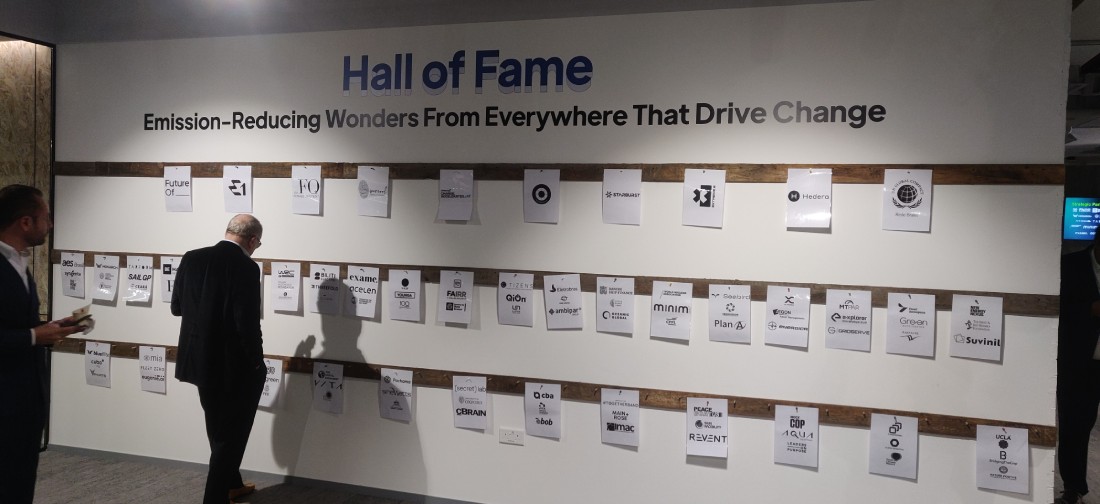Finance Industry Gathers at COP28 to Forge Path to Low-Carbon Economy
This year’s summit marks an unprecedented gathering of finance industry representatives at a United Nations Conference of the Parties (COP), underscoring the growing recognition of the critical role finance plays in addressing climate change
Finance industry leaders are gathering at the COP28 climate summit in Dubai to explore new funding structures and partnerships aimed at accelerating the transition to a low-carbon economy. This year’s summit marks an unprecedented gathering of finance industry representatives at a United Nations Conference of the Parties (COP), underscoring the growing recognition of the critical role finance plays in addressing climate change. The finance industry’s participation in COP28 signals a growing understanding that climate change is not just an environmental issue but also a financial one.
The finance industry believes the new approach should be financing emissions reductions rather than just reducing financed emissions. Blacklisting firms that pollute may not be a solution henceforth.
Key areas of focus for finance industry leaders at COP28 include:
*Developing financial structures tailored to the Global South: The goal is to devise financing models that provide attractive returns to private investors while remaining affordable for borrowers in developing countries, where climate change is having a devastating impact.
*Addressing the challenges of the voluntary carbon market: The voluntary carbon market has been plagued by a series of scandals, casting doubt on the validity of offsetting claims made by carbon credit buyers. COP28 attendees will explore ways to restore trust and integrity to the market.
*Mobilizing funding for climate technology: A critical question is how to collaborate with the public sector to secure additional funding for climate technology, particularly in emerging markets.
Other Key Developments at COP28

Oil Companies Pledge to Lower Methane Emissions
At COP28, fifty oil companies representing nearly half of global production pledged to reach near-zero methane emissions and end routine flaring in their operations by 2030. This includes major national oil companies such as Saudi Aramco, Brazil’s Petrobras and Sonangol from Angola, multinationals like Shell, TotalEnergies, and BP.
Over 150 Countries Sign Agreement to Cut Methane Emissions
The United States, several governments, philanthropies, and the private sector have pledged $1 billion in grants to support countries’ efforts to tackle methane emissions. More than 150 countries have joined the Global Methane Pledge, a voluntary agreement to slash their methane emissions by 30% by 2030. This includes two major emitters of methane, Turkmenistan and Kazakhstan.
World Bank Releases Blueprint for Methane Reduction in Agriculture
The World Bank has launched an 18-month “blueprint for methane reduction” that will set up 15 national programs aimed to cut methane emissions from activities like rice production, livestock operations, and waste management. This year, European Union negotiators also reached a deal to reduce methane emissions from the energy industry across the 27-member bloc.
Green Climate Fund Receives $20 Billion in Pledges
The United States has pledged $3 billion to the Green Climate Fund, the largest of its kind dedicated to supporting climate action in developing countries. This is in addition to another $2 billion previously delivered by the US.
117 Countries Commit to Tripling Renewable Energy Capacity
A commitment by 117 countries, led by the EU, the US, and the United Arab Emirates, aims to triple renewable energy capacity worldwide by 2030. This includes Brazil, Nigeria, Australia, Japan, Canada, Chile, and Barbados. While China and India have signaled support for it, neither backed the overall pledge on Saturday.
20 Countries Sign Agreement to Triple Nuclear Power Capacity
More than 20 countries have signed a declaration aiming to triple nuclear power capacity by 2050. US climate envoy John Kerry says the world cannot achieve “net zero” emissions without building new reactors.


